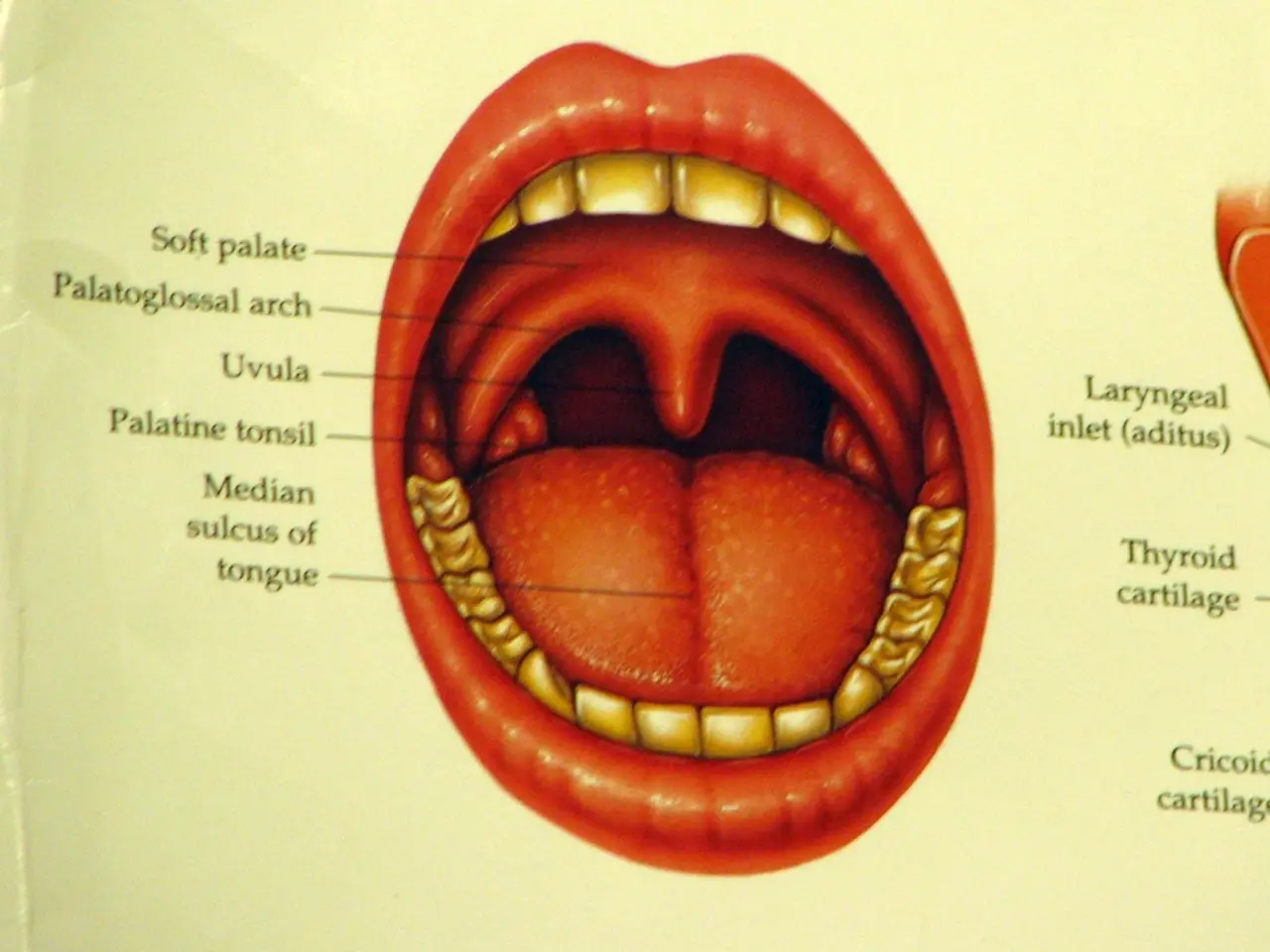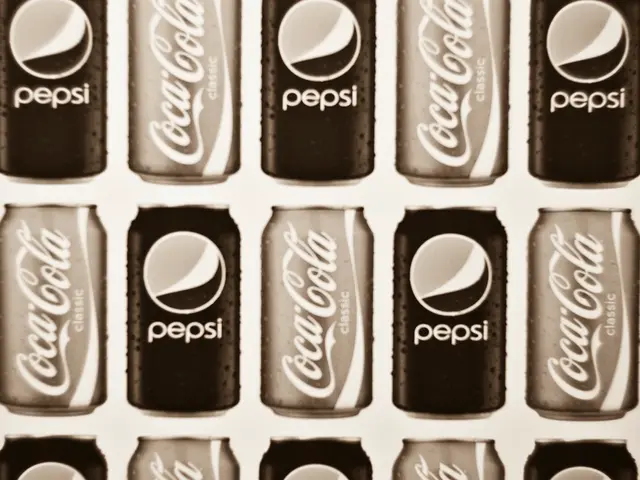Experiencing a parched throat upon waking: Understanding the possible reasons and strategies to avoid it
In this article, we delve into the common causes and effective management strategies for persistent dry mouth, also known as xerostomia.
Persistent dry mouth is a prevalent condition that can be caused by a variety of factors. The most common causes include medications, medical conditions, cancer treatments, age, lifestyle factors, and dehydration.
Medications such as those for depression, anxiety, allergies, high blood pressure, Parkinson’s disease, asthma, and cancer treatments, are often culprits in reducing saliva production [1][2][3][5].
Medical conditions like autoimmune diseases such as Sjögren’s syndrome, diabetes, rheumatoid arthritis, lupus, thyroid disorders, and other chronic illnesses can impair salivary glands [1][2][3][5].
Cancer treatments like radiation therapy or surgical removal of salivary glands in the head and neck region can cause lasting damage, leading to dry mouth [1][2][5].
Age, stress, mouth breathing, smoking, and hormonal changes like menopause are also contributors [1][3][5].
Dehydration is another common cause, due to illness, lack of fluid intake, excessive sweating, cigarette smoke, alcohol, or caffeine. People with sleep apnea-hypopnea syndrome (SAHS) are also more likely to experience dry mouth upon waking [4].
Sjogren's disease, an autoimmune condition, is characterized by a person's immune system attacking healthy, moisture-producing cells. People with Sjogren's disease may also experience dry eyes [6]. Radiation therapy in the head and neck area can damage the salivary glands and mouth cavity, leading to dry mouth upon waking [1][2][5].
If the dry mouth persists, consulting a doctor can help understand the cause and manage any potential underlying diseases, such as diabetes. Talking with a doctor may also help if a person is experiencing frequent thrush infections in their mouth or has recurrent ulcers or mouth sores [7].
To prevent or manage persistent dry mouth, the following strategies are recommended:
- Increase water intake regularly to maintain moisture [2].
- Stimulate saliva flow using sugar-free gum or candy [2].
- Use saliva substitutes or artificial saliva oral rinses to replace lost moisture [2].
- Breathe through the nose, not the mouth, to reduce drying [2].
- Discuss medication alternatives or dosage adjustments with your healthcare provider if drugs are suspected causes [3].
- Maintain good oral hygiene as dry mouth increases risk for cavities and oral infections due to reduced protective saliva [5].
Addressing underlying health conditions, managing stress, and avoiding tobacco can also help mitigate symptoms of dry mouth.
Continuous positive airway pressure (CPAP) therapy, often prescribed for SAHS, can also cause dry mouth upon waking. During a diagnosis, a doctor may check if the person's salivary glands are producing enough saliva. They may recommend artificial saliva sprays, lozenges, or gels, but these may only work for a limited time, and some people may not like the taste [8].
In conclusion, persistent dry mouth arises mainly from medication side effects, diseases, cancer treatments, aging, and lifestyle factors. Management focuses on hydrating, stimulating saliva, substituting moisture, modifying breathing, and consulting healthcare providers for underlying causes [1][2][3][5].
References: [1] Mayo Clinic. (2021). Dry mouth. Retrieved from https://www.mayoclinic.org/diseases-conditions/dry-mouth/symptoms-causes/syc-20350771 [2] American Dental Association. (2020). Dry mouth. Retrieved from https://www.mouthhealthy.org/en/az-topics/d/dry-mouth [3] National Institute of Dental and Craniofacial Research. (2020). Dry mouth. Retrieved from https://www.nidcr.nih.gov/health-info/dental-topics/dry-mouth [4] National Sleep Foundation. (2021). Sleep apnea and dry mouth. Retrieved from https://www.sleepfoundation.org/sleep-apnea/sleep-apnea-and-dry-mouth [5] Cleveland Clinic. (2021). Dry mouth. Retrieved from https://my.clevelandclinic.org/health/diseases/17234-dry-mouth [6] Sjogren's Syndrome Foundation. (2021). Sjogren's syndrome. Retrieved from https://www.sjogrens.org/about-sjogrens/ [7] American Academy of Oral and Maxillofacial Pathology. (2021). Dry mouth. Retrieved from https://www.aaomfp.org/patients-and-public/oral-and-maxillofacial-diseases-and-conditions/dry-mouth [8] National Sleep Foundation. (2021). CPAP and dry mouth. Retrieved from https://www.sleepfoundation.org/sleep-apnea/cpap-and-dry-mouth
Read also:
- Federal health clinics in Maine seek restoration of withheld Medicaid financing, filing a lawsuit against the Trump administration over funding reductions.
- Depakote Cost in 2025: Discounts and Additional Savings Options
- Understanding the Two Variants of Macular Degeneration
- Guidelines for Developing a Fresh New Employee Onboarding Presentation







